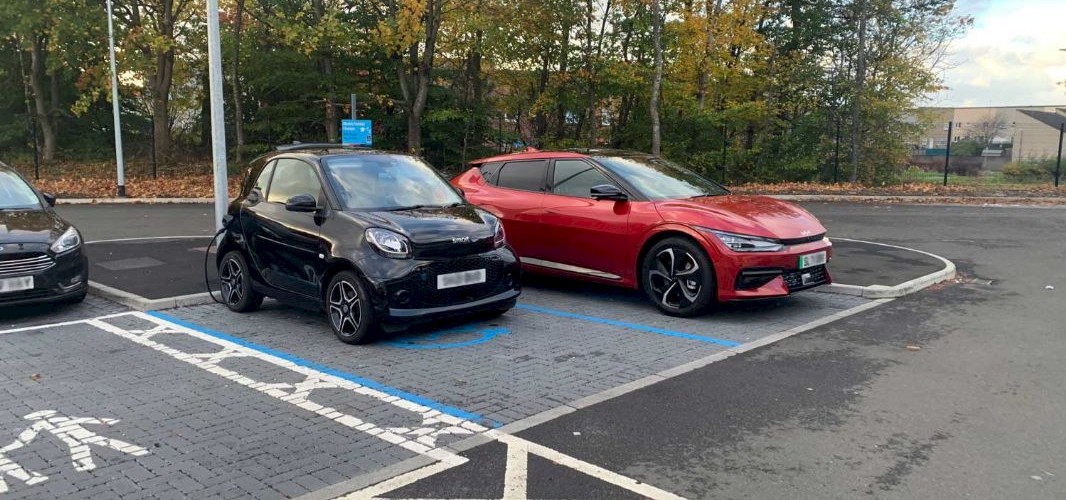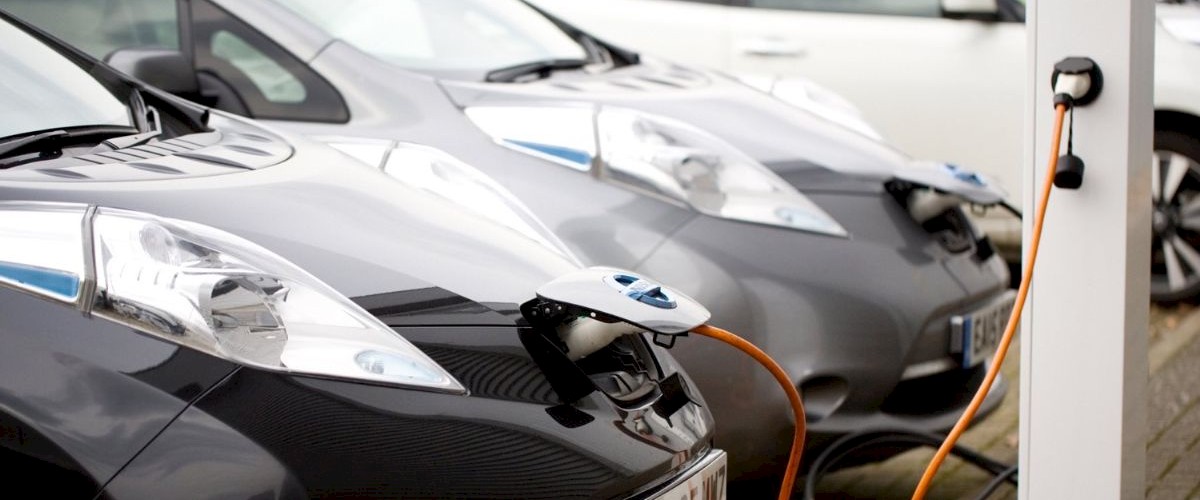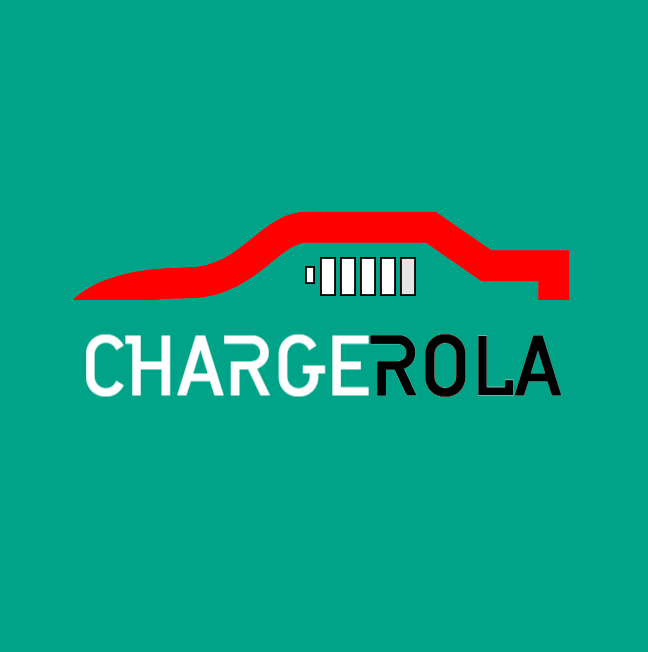
If you live in a flat or rented accommodation you can now get some funding from the UK government to help with the cost of installing electric vehicle charging infrastructure.
What is the electric vehicle infrastructure grant for residential car parks?

This new scheme is part of the replacement for the Electric Vehicle Homecharge Scheme (EVHS) which ended on March 31, 2022.
While previous funding was aimed at homeowners with off-street parking, this one is all about trying to help electric vehicle (EV) owners that rent and without off-street parking get access to the charging points they need to power their electric vehicles.
It means landlords that are renting out properties and flats can gain access to grant funding to install the work needed to help future proof car parks, as well as putting in some chargers.
The Office for Zero Emission Vehicles (OZEV) reshaped the funding around charging infrastructure as it knew this area of the market is not as developed for people in flats and the rental sector.
OZEV said it wants to give those in rented accommodation and flats the same opportunity as electric vehicle drivers with off-street parking.
Will there be any changes to the grant in the near future?
OZEV is meant to be introducing a new digital platform to simplify the grant application process this summer.
It was originally expected closer to the March 31 deadline, but currently there is an “interim manual service” while the new digital system is in private beta testing.
Installers that were previously EVHS authorised will be eligible to claim under this scheme.
The same list of EVHS approved chargepoints and EVHS eligible vehicles applies to this new grant.
Once the digital service goes live, OZEV will transfer grant applicants over to the digital portal to prevent any duplicate applications.
OZEV has also added a caveat to the official guidance to say that it reserves the right to terminate the grant at any time, but will aim to at least give four weeks’ notice before it does.
Should the grant rate change, or the scheme end, the Government has said it will honour grant claims made before the date of any public announcement.
Costs towards the charging infrastructure

Landlords can apply for 30 grants each year and each grant application can be up to a maximum of £30,000. One grant is available per building and its residential car park.
Landlords can get up to £500 for each parking space that the EV charging infrastructure will provide a unique chargepoint socket to, either from installed chargepoints or those that will be installed at a future date through the future connection locations.
If additional chargepoints are needed after the infrastructure work has been completed for the residential car park, landlords will be able to access the EV chargepoint grant for landlords instead.
A landlord would need to provision five parking spaces with charging infrastructure, and to install one chargepoint socket. This installation would provide for a maximum available grant of £2,850.
Costs towards EV charging stations
Landlords can get up to £350 towards the cost of buying and installing each chargepoint socket provided. This is in addition to the amount available for providing a space with charging infrastructure.
Additional costs that the grant covers
That £30,000 price cap can also cover costs for areas like grid connections, any associated signage, civil engineering works, labour costs for installation, project management and any associated reinstatement work. Costs associated with grid reinforcement are not covered by the funding.
However, the grant does cover the cost of things like putting in Wi-Fi or cellular repeaters to make sure chargers can connect to the internet or 5G.
The grant cap
The total amount of grant funding available cannot be more than 75% of the cost of the installation of the chargepoints and infrastructure.
The amount available per grant is capped at £30,000.
Who is eligible for the grant?

The grant money is aimed at anyone that rents, leases or manages residential properties.
This could be a landlord of a property that lets the property, a right to manage (RTM) company, a residents’ management company (RMC), companies that own the freehold of a leased or rented property, public authorities or housing associations.
Any of the above have to be registered at Companies House or they have to be VAT registered with HMRC in order to gain access to the funding.
What properties are eligible for the grant?
Properties have to be in England, Wales, Scotland or Northern Ireland. Unfortunately, properties in the Channel Islands and Isle of Man are not covered.
The property has to be a multi-unit residential property, such as an apartment block or an estate consisting of multiple buildings sharing a common parking area. The car park has to have at least five clearly marked parking spaces.
Where a multi-unit property is mixed use (for example, commercial and residential units), applications can only be made for parking spaces allocated to its residential units.
What are the parking requirements for the grant?
This grant money can only be used for private parking and the landlord has to own the land or have legal right to it.
The residential car park can be connected to the property it is associated with or separate from it. OZEV has stated this car park can be “continuous or comprise several discrete areas”.
The parking spaces provisioned under the grant have to be for the use of the residents of the property.
What are the charge point requirements?
Any chargepoint on the approved model list can be installed. This includes popular models like the Easee One, Ohme Home Pro.
The full list of approved models can be found here.
Smart Home Charge is an OZEV approved installer and the majority of the charge points it offers are OZEV approved.
How do I apply for the residential car park grant?

Landlords have to register with the DVLA using the EV infrastructure grant for residential car parks registration form.
Once approved the DVLA will provide a landlord registration number which can be shared with an OZEV improved installer. This installer would then apply for the grant funding on behalf of the landlord.
The landlord would have to discuss their requirements with an installer, including choosing the approved charger models they wanted.
Installers can apply for the grant here.
Once the work is complete, the installer will deduct the grant amount from the total installation cost.
Can I apply for the residential car park grant while also applying for the EV chargepoint grant for landlords?
The residential car park grant can be used for installing infrastructure and for putting in chargepoints. There is also a separate grant for landlords for just putting in chargepoints that does not help towards the cost of infrastructure.
Landlords can apply for both grants, but the funding for the residential car park infrastructure and the chargepoints associated with that have to be on one application.
Any additional chargepoints that are not part of the residential car park scheme have to be applied for with the separate EV chargepoint grant for landlords.

